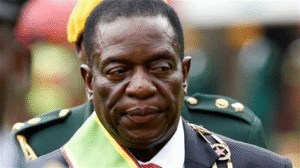FORMER RBZ GOVERNOR DISPELS RUMORS OF THEFT

In a striking defense against recent accusations, Dr. Gideon Gono, the former Governor of the Reserve Bank of Zimbabwe (RBZ), has fervently dismissed claims made by Chris Mutsvangwa, the Zanu PF spokesperson. The allegations suggested that during Gono’s tenure, substantial amounts of Zimbabwe’s gold reserves were stolen through unauthorized transactions with a Saudi Arabian company.
According to Gono, the allegations are a gross misinterpretation of a legitimate and complex financial transaction that took place in 2006. During this period, RBZ engaged in a $150 million deal involving jewelry with a Saudi entity. This transaction was not merely a sale but part of a broader strategy to secure a $600 million line of credit through a South African bank. The funds were intended to alleviate the economic strain caused by severe Western sanctions imposed on Zimbabwe in 2002, which targeted and disrupted government operations and the broader economy.
Mutsvangwa, who was serving as Zimbabwe’s Ambassador to China at the time, is accused by Gono of lacking a factual basis for his claims. Gono emphasized that Mutsvangwa’s absence from the country during the deal’s formulation left him poorly informed about the transaction’s details and its strategic importance.
The funds obtained through the credit line were crucial for importing essential commodities such as electricity, fuel, and fertilizer. These imports were vital for sustaining the Zimbabwean economy at a critical juncture. Gono pointed out that the stringent sanctions had left the RBZ and the nation in a dire financial position when he assumed office in December 2003, with the central bank essentially running on empty.
In his public statement, Gono detailed that the Anti-Corruption Commission of Zimbabwe (ZACC) had previously investigated these claims and found no evidence of wrongdoing. The investigations included interviews with both Gono and his successor, John Mangudya, and scrutiny of the relevant financial transactions and agreements.
Gono warned that if left unchallenged, such “blatant lies” could lead to widespread character assassination and systematic misrepresentation of facts, severely damaging reputations. He expressed concern over the potential harm to the credibility of not only the individuals involved but also the nation’s financial institutions.
The former governor also reflected on the difficulties faced during his administration, underscoring the complex financial maneuvers required to navigate the sanctions. He suggested that those without a direct role or adequate knowledge of the circumstances might easily misinterpret the actions taken during those times.
In a broader call for accountability and truth, Gono proposed that if necessary, President E.D. Mnangagwa should establish a Commission of Inquiry to thoroughly investigate and clarify the situation. Such a measure would help to dispel myths and ensure that the public receives accurate and clear information regarding the matter.
Gono’s tenure, which spanned from 2003 to 2013, was marked by his efforts to stabilize and boost Zimbabwe’s economy under challenging conditions. He closed his statement by affirming his commitment to defending the integrity of Zimbabwe’s financial governance and stressed the importance of historical accuracy and integrity in public discourse.
By addressing these allegations head-on, Gono hopes to restore confidence in Zimbabwe’s banking system and encourage a more informed and respectful dialogue about the country’s economic history and its leaders’ legacies.




